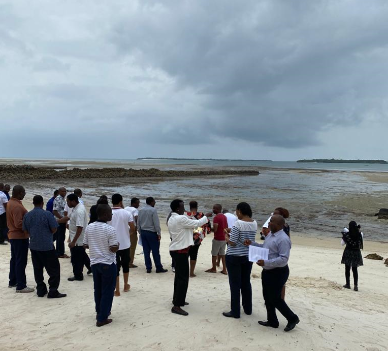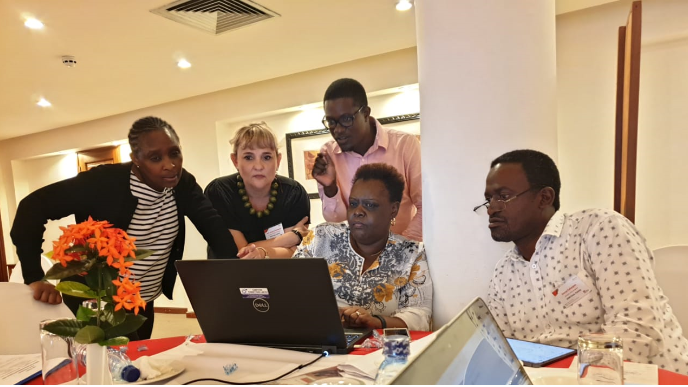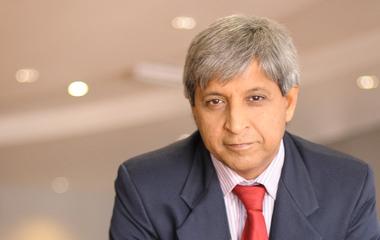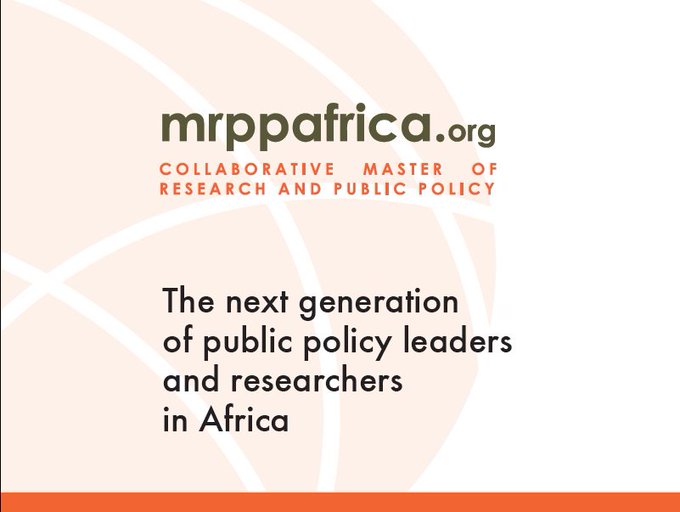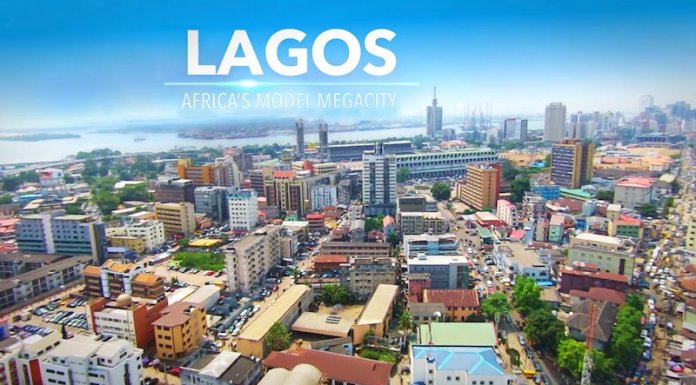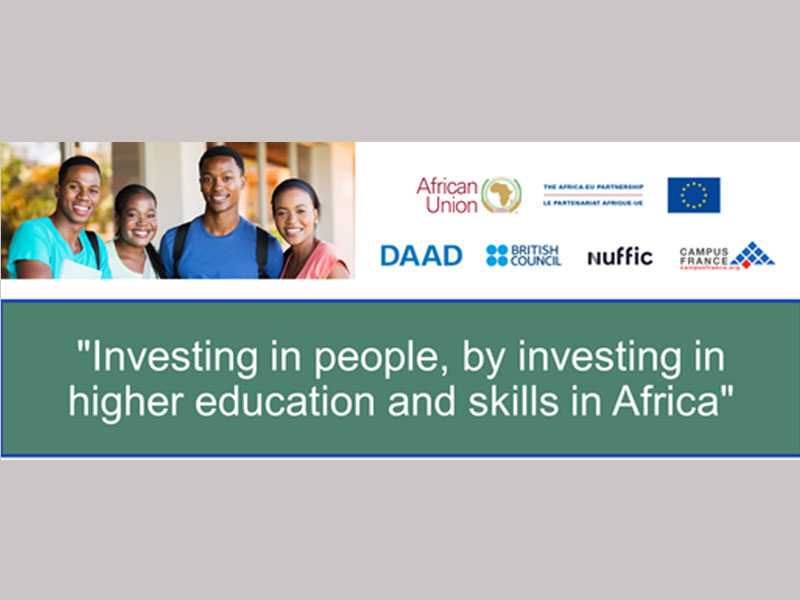Evidence-based policy (EBP) and linking public policy theories with practice was the focus of a one-day Policy Forum organized recently by the Alumni/Master Class of Research and Public Policy (MRPP) which is hosted by the Department of Political Science of University of Lagos.
Themed, “Linking Public Policies Theories with Practice,” the forum was part of efforts designed to identify the factors responsible for persistent policy failures in the country especially at the grassroots and proffer solutions to them.
Participants expressed believe that an evidence-based policy or policy theories backed by practice would bring good results. They blamed poor policy implementation in the country.
The Team Leader of the forum, Mr. Idris Rufai, said the essence of the Policy Forum was to place the local government system in its right perspective and to put policy theories to practice.
He identified causes of policy failures in Nigeria as non-involvement of all stakeholders at the formulation and implementation stages of the policies, lack of political will to implement formulated policies; unnecessary political interferences, termination of subsisting policies by successive governments and lack of policy monitoring and accountability.
In Nigeria, according to the 1999 Constitution, the local government is the third tier of government. It was created to bring the government closer to the grassroots and give the people a sense of belonging.
Currently, there are 774 local government areas (LGAs) in the country. They are however hamstrung by a myriad of challenges that have constrained them from performing their constitutional functions. The negative consequence of this is the excruciating poverty and underdevelopment that have ravaged the local communities in the country. Reports show that none of these LGAs has made any appreciable progress in terms of bringing governance closer to the people as envisaged in the 1999 Constitution.
MRPP is a postgraduate programme designed by the Partnership for African Social and Governance Research (PASGR), an independent, non-partisan pan-African organisation established in 2011 and located in Nairobi, Kenya.
The organisation is currently engaged in more than 12 universities African and works to enhance research excellence in governance and public policy that contributes to the overall wellbeing of African people. In Nigeria, the Universities of Lagos, Ibadan, and Jos are collaborating with PASGR on the programme.
In general a sense, the policy can be conceptualised as a consistent and purposeful way of doing something. Individuals, families, and business organisations have policies that are private and self-governed.
Hence, public policy, as the former Dean of Postgraduate Studies of University of Lagos, Professor Solomon Akinboye, pointed out is, “whatever governments choose to do or not to do in dealing with problems of public interest.”
Essentially, public policy shapes the daily lives of the citizens and has direct consequences on their well-being. It is as a result of public policymaking that some nations are considered rich and others poor, while some countries are called developed and others underdeveloped.
According to policy experts, one of the most crucial roles of public administration is policy formulation and implementation. As each of the panelists pointed out at the Forum, formulation, and implementation of public policy is one thing, sustaining and maintaining the policy is another.
The policymaking process is quite complicated and can result in good and bad policy, both having far-reaching consequences.
But, regrettably, in Nigeria, as the panelists pointed out, the people for whom the policies are meant to help are never consulted in any of the stages of the policy cycle.
In most cases, the policies which they do not need are foisted on them; little wonder the slow pace of progress that has been recorded in the country. A policy is considered ineffective when it has failed to address public problems in ways that are consistent with widely shared values and preferences.
The panelists noted that the mere existence of good policies does not automatically result in successful implementation. Problems with policies often lie in the implementation thereof, thus forming a policy gap.
Chairman of Lagos State Local Government Commission, Babatunde Rotinwa, shared this perspective when he said “poor implementation is largely responsible for policy failures in the country,” adding that local governments were created to reach the grassroots but this objective has not been realized. The people at the grassroots are enmeshed in excruciating poverty and deprivation.
Policy inconsistency and summersaults in Nigeria is an issue. Once a new government takes over power, they usually abandon previous governmental policies. Ignorance, poverty, disease, patronage politics and overlaps in institutional mandates also affect policy implementation. For instance, a government may introduce a policy on family planning, yet there are people who believe, culturally, that if a woman uses contraceptive methods, she becomes infertile.
So, even if the government provides family planning contraceptives free of charge, no one will use them. In Africa, there are still people who resist immunization. This is partly the reason that almost all African countries could not achieve millennium development goals thresholds.
The key to the success of any policy implementation is to understand the situation where the policy initiative is to be put into practice. The intention of the government must be made known, goals to be achieved are declared, means of achieving the goals are stated and programmes to achieve those goals and actions announced.
Basic questions like how well the problem is defined what its characteristics are, what goals to be pursued must be answered. Most of the policies in Nigeria, unfortunately, fall short of the above and thus fail to tackle the right problems leading to inappropriate policies being implemented.
Inappropriate problem definition where the consequences of the problem are targeted instead of the problem itself has led to the devotion of scarce public resources to solving the wrongly defined problems. In a situation where the wrong problem is defined, the real characteristics of the problem cannot be identified, leading to the setting up of wrong goals and finally the use of inappropriate policy instruments to achieve the goals. This is the exact situation in Nigeria.
So, today, according to policy experts, in Africa, most policies find their way through to the citizens who have little or no knowledge of social thought or social systems. Many politicians rely on armchair theorising about what and what would or would not work as a policy. As long as the governments do not want to be people-centric, their policies will always meet ardent resistance. Beneficiaries should get involved and understand the policy. There is a need to educate the public to understand government policies. This disconnect from the people has to be fully addressed.
To address this problem of disconnect, one of the panelists, Mr. Gbadebo Rhodes-Vivour, who was the Peoples Democratic Party (PDP) candidate for Lagos West Senatorial in the last general elections as well as a graduate of MRPP, called for more decentralisation of powers to serve the grassroots better. He regretted that the way the Nigerian political system is structured does not give room for the people in the grassroots to participate in the political process.
He said that the autonomy of the local government authorities in the country have been seriously eroded because the state governments organises the election just as the staffing of the grassroots governments is part of the political patronage in the system.
Creation of the State Joint Local Government Account (SJLGA) as noted under Section 162 (6) of the 1999 Constitution states that “Each State shall maintain a Special Account to be called “State Joint Account” into which shall be paid all allocations to the Local Government Councils of the State from the Federation Account and from the Government of the State.” Panelists said that this has made the search for financial autonomy almost impossible as the LGAs depend on the other tiers for funds
The Chairman of Lagos Island East Local Development Area (LCDA), Comrade Kamai Salau-Bashua, who was also among the discussants, differed by saying that in spite of the infringement on the functions of third-tier government in Nigeria, local governments in Lagos State have made tremendous improvements in the delivery of public goods even better than their counterparts in other parts of the country. He said that in the last four months, local governments in the country have been receiving their allocations directly from the Central Bank of Nigeria.
Strategies proposed for ameliorating the situation include: every stakeholder as it affects policies in various sectors must be involved from formulation to the implementation stages; evolving the political will to implement formulated policies; continuity in implementation of viable policies irrespective of leadership changes; further strengthening and effective utilization of the Policy Implementation, Monitoring and Evaluation Agency which is located in the Presidency in its mandate of providing feedback to government on the progress or otherwise of policy performances in Nigeria.
Besides the policy-makers, the presence of an informed citizenry and self-organised groups may contribute valuable pieces to the final policy. Successful implementation of the policy again requires citizens’ participation and continual political monitoring and engagement.
The Dean of the Faculty of Social Sciences of University of Lagos, Prof. Funmi Banmeke and the MRPP Programme Coordinator, Department of Political Science, Dr. Maryam Quadri, said the views of participants would be put across to all the three tiers of government in the country.
This has been reposted from https://www.thisdaylive.com/index.php/2019/11/06/policy-process-linking-theories-with-practice/
